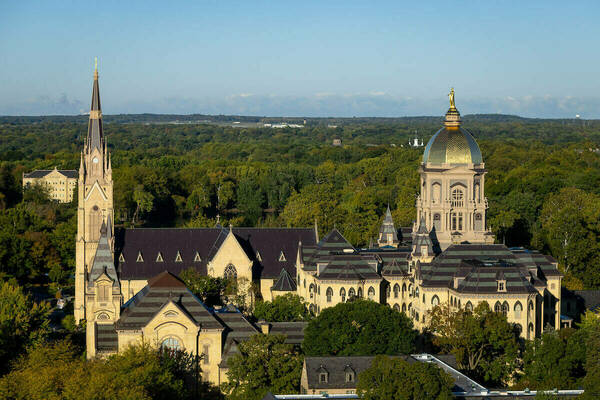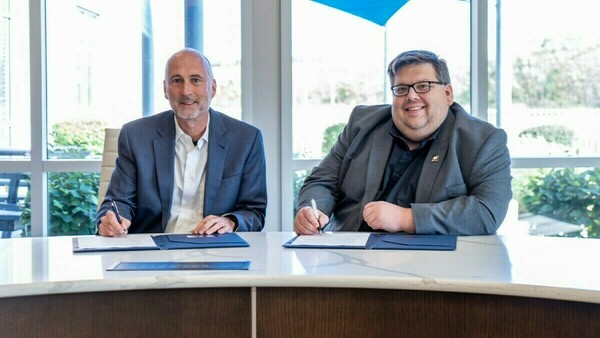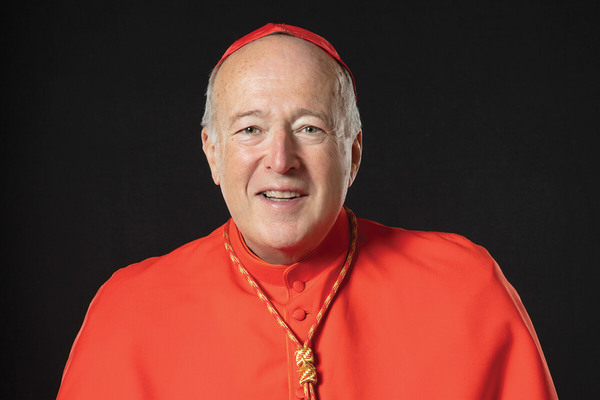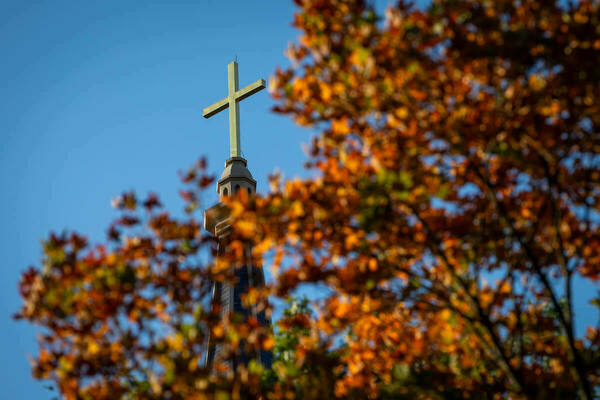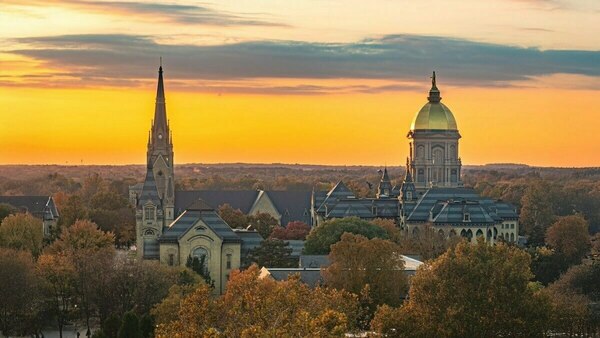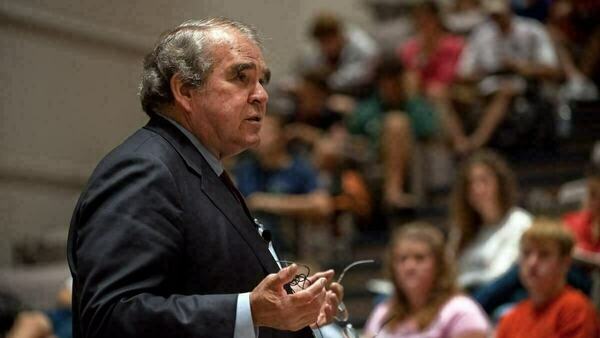Through respectful dialogue and encounter, students learn about the Israeli-Palestinian conflict and work for peace
For Tess Jacob, a University of Notre Dame senior majoring in global affairs, a recent intercultural encounter in Rome provided a deeply humanizing way to understand the Israeli-Palestinian conflict.
The February trip, which included fellow Notre Dame students as well as both Arab and Jewish students from The Hebrew University of Jerusalem and Tel Aviv University, did not focus on the grim statistics of the conflict or the unrelenting shock of media headlines.

Instead, the trip focused on the importance of understanding narratives, pursuing respectful dialogue and developing a deeper understanding of people who hold different perspectives. In this way, it built upon the University of Notre Dame’s larger focus on civil dialogue and the empathetic, people-first approach it has taken to teaching and learning about the conflict.
“My academic career at Notre Dame has involved reading, writing and talking about conflict, but I have never had an opportunity like this to meet and engage with the people who are living through it,” Jacob said. “This was a unique experience. It was about building a space where people felt comfortable in expressing their views and also being able to see each other in a different light. Ultimately, this provided the foundation for a nuanced and empathetic dialogue that was enriching and enlightening.”
Seeing shared humanity
And that, according to Notre Dame professors Mahan Mirza and Tzvi Novick, was the goal of the trip: an encounter that humanized people directly impacted by a deeply entrenched global conflict.
The two instructors co-teach a related class on the conflict, “Israel, Palestine and What We Owe Each Other,” and co-lead a series of related talks as part of this year’s Notre Dame Forum. Mirza and Novick co-led the trip along with Elitzur A. Bar-Asher Siegal, a colleague at The Hebrew University of Jerusalem.
Together, the three instructors drew on their experience of bringing different audiences together in dialogue, working with partner organizations to facilitate an impactful encounter. In addition to participating in dialogue sessions, attendees pursued a variety of connection-building activities, such as painting a mural, touring Rome’s landmarks and attending an audience with Pope Francis.
“As I have processed the horrors of the violence in the region, I have recently found myself struggling to keep hope alive,” said Mirza, teaching professor in Notre Dame’s Keough School of Global Affairs and executive director of the school’s Ansari Institute for Global Engagement with Religion. “But after witnessing the transformation of students as they learn with and about each other through this kind of powerful encounter, and after seeing them imagine a different kind of future together, it becomes impossible not to hope.”
The encounter made the conflict real, said Novick, the Abrams Professor of Jewish Thought and Culture in Notre Dame’s Department of Theology. And it also made the humanity of others real — something Novick said can change the way people think about the conflict.

“You simply can't speak or think about the conflict in the same way when, for every statement that someone makes about a Palestinian or an Israeli, you can call to mind the name and something of the personality, and the personal story, of someone whom you sat down to a meal with, or spoke with directly, or painted a painting with,” Novick said. “There were plenty of strong words and raised voices throughout our conversations; these were not kumbaya circles by any means. And yet, everyone sat and ate with each other and genuinely appreciated the opportunity to learn more about each other.”
Students said they gained tangible benefits from the experience. For Majdulin Mujahed, a Palestinian student from Tel Aviv University, it was a chance to move past cultural barriers and truly see other people.
“Everyone has a veiled window into their identity and self-perception, and it becomes slightly more visible at moments of challenge or comfort,” Mujahed said. “This setting allowed me to glimpse beyond that veil and form a more intricate image of the person before me. I was thus able to understand the other’s narrative on a deeper level.”
For Tomy Stockman, a Jewish student from The Hebrew University of Jerusalem, the experience provided chances to authentically bond with people from different backgrounds, and to witness fellow participants doing so.
“I saw an Arab student and a Jewish student, who just a moment ago had a major argument about fundamental principles of this conflict, comfort each other in their frustration moments afterward, and then share a pasta dinner an hour later,” Stockman said. “This has shown me that building fruitful dialogue is only possible through creating a sense of community — being able to disagree but sticking together through the pain with mutual understanding and love.”
Max Kitchell, a first-year global affairs and economics major from Notre Dame, appreciated the opportunity to take his learning experience beyond the classroom and hear others’ perspectives. The result, he discovered, was a deeper, richer understanding of the human side of conflict.
“I think it is easy to say, ‘I've taken all the classes, I've gone to all the lectures, I've read the books, what more is there to understand?’” Kitchell said. “But this dialogue experience showed me how little I still understood. There is always more nuance, more complexity to grasp; dialogue reveals layers.”
Working for empathy and peace
One of the emotional highlights of the trip, participants said, was an audience with Pope Francis, during which students presented him with a heartfelt letter, handwritten in four languages: Arabic, English, Hebrew and Spanish.

“We came to seek not consensus but the capacity to understand each other,” the students wrote. “We emerge from this journey with deeper connections with one another, and thus with hope. As these encounters have shown us, honest cross-cultural conversations help us see each others’ dignity through and in our differences.
“May the Church continue to support these encounters for other communities and ours. Please join us in praying for the courage to dialogue and for peace.”
That meeting underscored the importance of dialogue and encounter, something Annika Singh, a sophomore economics major from Notre Dame, experienced repeatedly on the trip.
“Though each day had disagreements and tension, the group was united in its commitment to honesty and empathy with each other,” Singh said. “I've returned from this experience empowered to engage in conversations with people I may disagree with, keeping in mind that we all have common hopes and values we can work toward together.”
Partnerships make experience possible
The trip was made possible thanks to the generous support of many partners. Notre Dame worked with Middle Meets, an organization co-founded by Stockman that includes Jewish and Arab university students at The Hebrew University of Jerusalem and Tel Aviv University, under the guidance of Professor Bar-Asher Siegal.
The encounter also received generous support from Scholas Occurentes, an international organization founded by Pope Francis that seeks to create a culture of encounter by bringing young people from different backgrounds together in dialogue; and from Notre Dame Global, which hosted a gathering at Notre Dame Rome.
In addition, the trip received additional funding from several Notre Dame sources, including the Keough School’s Kroc Institute for International Peace Studies and its Ansari Institute for Global Engagement with Religion, and from the Abrams Chair in Jewish Thought and Culture in the Department of Theology, part of Notre Dame’s College of Arts & Letters.
Watch: Highlights from the Rome Intercultural Encounter
Special thanks to Scholas Occurentes, one of Notre Dame’s partners in organizing this trip, for producing this video.
Originally published by at keough.nd.edu on March 6.
Latest ND NewsWire
- Notre Dame receives $2.5 million gift from Coca-Cola to expand entrepreneurship programs into FIFA World Cup 26 host citiesThe Coca-Cola Company in North America has awarded a $2.5 million gift to the University of Notre Dame’s Urban Poverty and Business Initiative (UPBI). The initiative brings together universities and nonprofit organizations committed to alleviating poverty and helping low-income and underprivileged individuals launch and grow sustainable businesses. The gift will enable UPBI, housed within the University’s Keough School of Global Affairs, to expand its network of partner organizations across the United States and into Canada, including cities that will host the FIFA World Cup 26.
- Notre Dame, Beacon Health System announce new, multiyear research collaborationThe University of Notre Dame and Beacon Health System have announced a new, multiyear research collaboration. Through this agreement, Notre Dame and Beacon will jointly develop collaborative, health-focused research projects that are of interest to both organizations, particularly in the areas of oncology and health data.
- Cardinal Robert McElroy, archbishop of Washington, DC, to speak at Notre Dame Forum event on ‘Healing Our National Dialogue and Political Life’Cardinal Robert McElroy, archbishop of the Archdiocese of Washington, D.C., will join University President Rev. Robert A. Dowd, C.S.C., for a conversation titled “Healing Our National Dialogue and Political Life” at 4 p.m. Friday (Oct. 17) in Room 215/216, McKenna Hall, as part of the 2025-26 Notre Dame Forum on the theme “Cultivating Hope.” This event is free and open to the public.
- ND experts offer insight on ‘Dilexi Te’On Thursday (Oct. 9), Pope Leo XIV issued his first major document, “Dilexi Te” (“I Have Loved You”), addressed to all Christians and divided into five chapters. Below, experts from the University of Notre Dame’s College of Arts and Letters, Keough School of Global Affairs, Institute for Social Concerns and the Institute for Educational Initiatives respond to the document.
- Notre Dame’s Kellogg Institute partners with Vanderbilt University to launch 2025-26 democracy surveyThe University of Notre Dame’s Kellogg Institute for International Studies and Vanderbilt University’s Center for Global Democracy are partnering to advance one of the world’s leading surveys on attitudes toward democracy. Starting in October, the Center for Global Democracy, with support from the Kellogg Institute, will conduct the 2025-26 round of the AmericasBarometer, which tracks public opinion on democracy in 20 countries across the Americas.
- Notre Dame to award 2026 Evangelium Vitae Medal to Wm. David Solomon, founding director of the de Nicola Center for Ethics and CultureThe de Nicola Center for Ethics and Culture at the University of Notre Dame announced that the late Wm. David Solomon, associate professor of philosophy emeritus and founding director of the center, has been named the recipient of the 15th annual Notre Dame Evangelium Vitae Medal, the nation’s most important award for heroes of the pro-life movement. The medal will be presented to Solomon’s family at a special Mass and dinner May 1, 2026, at Notre Dame.









